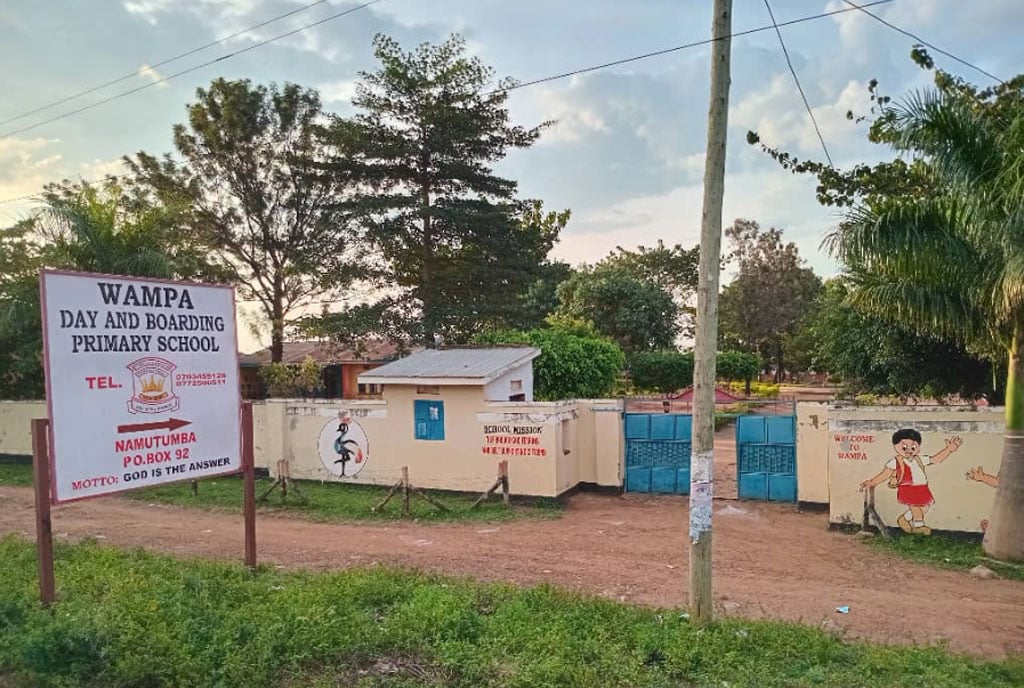Prime
US bans corrupt government officials from travel

Representatives of the US military police with some of the first military police contingent during the pass-out at the Peace Support Operations Training Centre in Singo, Nakaseke District in 2013.
What you need to know:
America cancels a regional military exercise with Uganda, cuts funding for a police programme and imposes travel bans on officials involved in “serious” human rights abuses and gross public corruption after the signing of the anti-gay law.
Kampala
The United States has cancelled a regional military exercise with Uganda, cut funding for a Uganda police programme and imposed travel bans on Ugandan officials involved in “serious” human rights abuses and gross public corruption in response to the passing of the anti-homosexuality law.
The White House announced in a statement on Thursday of “discontinuing or redirecting of funds for certain additional programmes involving the Uganda Police Force, Ministry of Health, and National Public Health Institute”.
The aid and travel sanctions are among the punitive measures resulting from the US review of her relations with Uganda over the anti-gay law.
“As president Barack Obama has stated, the Government of Uganda’s enactment of the Anti-Homosexuality Act (AHA) runs counter to universal human rights and complicates our bilateral relationship. We announced in April a series of initial responses, and we have since considered how further to reinforce our support for human rights of all Ugandans, regardless of sexual orientation or gender identity,” the statement said.
About $2.4m (Shs6 billion) earmarked for community policing by the Uganda police will be discontinued in part following the police raid on the US-funded Makerere Walter Reed Project in Nakasero, Kampala, the Africa director at US National Security Council, said.
Senior US administration officials, speaking before the announcement by the White House, said the stepped up measures were carefully targeted at those responsible for abuses related to implementation of the anti-gay law and involved in corruption.
The officials said the steps would not directly affect HIV/Aids and food programmes that benefit ordinary Ugandans. “The idea is to send a signal to perpetrators and would-be perpetrators that we are indeed monitoring, that we are indeed prepared to take measures, and that there are consequences,” a senior administration official told Reuters.
In responding to the aid cancellation, the government spokesperson, Mr Ofwono Opondo, said they will reprioritise resources in the new budget to “meet critical domestic obligations”.
He described the travel bans as a “scarecrow because Ugandan officials can conduct international business” without having to physically be in the US.
The US financial support for Ministry of Health staff salaries, travel expenses, and other items on health-related activities are being shifted to be executed by non-governmental partners.
Details of the White House statement show that $3 million (about Shs7.5 billion) for the National Public Health Institute, which was planned to be established in Uganda, will be relocated to an unnamed African country while a National Institutes of Health genomics meeting which had been due in Kampala will now be moved to South Africa.
In March, the US had redirected funding from programme implementers, whose willingness to serve all deserving people was doubted, of certain military and intelligence engagements to other locations.
It also suspended near-term invitational travel for Ugandan military and police officials.
After President Museveni in February assented to the anti-gay legislation, days after president Obama warned that the “odious” law would complicate valued US-Uganda relations; Washington said it was reviewing its engagement with Kampala.
On Thursday, National Security Council spokesperson Caitlin Hayden announced the new measures were intended to “further reinforce our support for human rights of all Ugandans, regardless of sexual orientation or gender identity”.
“Specifically, the Department of State is taking measures to prevent entry into the US by certain Ugandan officials involved in serious human rights abuses, including against LGBT individuals (gays),” she said. “In addition, the US will take steps, consistent with current authorities, to prevent entry into the US by Ugandans who are found responsible for significant public corruption,” she added.
In reply, Mr Opondo said the law was properly passed by the Ugandan Parliament, and will be implemented until amended or nullified by a court of competent jurisdiction.
Currently, there is a petition in Uganda’s Constitutional Court by a group of gay rights activist challenging the constitutionality of the Anti-gays law.
He challenged the US government to share with Uganda the list of its blacklisted corrupt officials for additional sanctions at home because both corruption and violation of human rights, including of LGBTs, are criminal offences.
Mr Opondo said America has already largely withdrawn direct support to government preferring to channel its assistance through NGOs and therefore its discontinuation or redirection of additional aid allocations would be inconsequential.
Washington provides about $740m (about Shs1.8 trillion) to Uganda annually in development assistance, with much of the money going to health, mostly for supply of anti-retroviral drugs and other health programmes and agriculture.
Mr Hayden noted the new sanctions would not, however, diminish the US commitment to provide development and humanitarian support for Ugandans or its partnership with the government to counter the Joseph Kony-led LRA and improve security in Africa.
“We will seek to advance these interests even as we continue—in Uganda and around the world—to oppose discriminatory practices and champion human rights for all,” she said.
Foreign Affairs Minister Sam Kutesa and Chairman of the UN General Assembly said: “The step they have taken is regrettable, but I believe other areas of collaboration will continue to remain open.”
Additional reporting by Charles Mwanguhya



